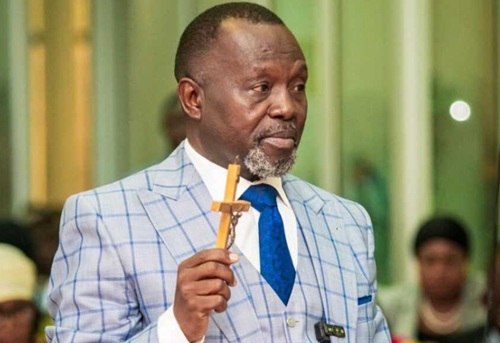
A-G Ayine on why he was using plea deals instead of custodial sentences
The Attorney-General and Minister of Justice, Dr Dominic Akuritinga Ayine, has defended his resort to the use of plea deals instead of non-custodial sentences in certain corruption cases, stating that they are grounded in existing law and designed to help the state recover funds.
Speaking at a government press briefing on Monday [July 28, 2025] dubbed "Accountability Series", Dr Ayine said Section 35 of the Courts Act, 1993 (Act 459), which allows for restitution in exchange for a guilty plea, is not a loophole but a legitimate legal provision.
“Section 35 is the law, not a loophole,” he said. “Even when I was in my final year at law school in 1991, it was clear that restitution was contemplated as a legitimate outcome. If an accused person pleads guilty and offers to return the money, the judge is mandated to consider a non-custodial sentence.”
What Section 35 allows
Section 35 of the Courts Act allows an accused person to plead guilty and return money or property taken from the state. If the court accepts the offer, the judge is required to impose a non-custodial sentence, meaning the person may avoid prison.
Dr Ayine explained that under this law, the judge’s decision is final.
“I can oppose it, but once the judge accepts the restitution offer, the law leaves me with no discretion,” he said.
He added that public dissatisfaction with perceived leniency should be directed at the law itself rather than assumptions of political influence.
“This was enacted by the First Parliament of the Fourth Republic. It is part of our law,” he said.
Section 35 vs Plea Bargain Act
Dr Ayine also drew a clear line between Section 35 and the Plea Bargain Act. While Section 35 allows the accused to deal directly with the court, the Plea Bargain Act enables the Attorney-General’s Office to negotiate with the accused before the case reaches the court.
“The plea bargain law allows us to negotiate recovery and even drop charges where necessary,” he said. “But we don’t do it blindly. We build our dockets carefully, and we only negotiate when we can get value in return, especially full or partial recovery of state funds.”
NSA scandal suspects seek plea deals
Dr Ayine revealed that eight suspects, including three former officials of the National Service Authority (NSA), have approached his office for plea negotiations.
He said some have provided documents, while others have offered to return money.
“People involved are coming forward. Some have already brought documents. Others are bringing money,” he said. Two cheques totalling nearly GH¢2 million have so far been traced to the former NSA Director-General, Mr Osei Assibey Antwi, he said.
Dr Ayine said this approach helps to speed up the recovery of public funds while also strengthening ongoing prosecutions.
Choosing recovery when jail is not possible
Dr Ayine admitted that full recovery is not always achievable, but maintained that a practical approach sometimes yields better outcomes.
“I want to jail persons who have looted state resources. But I also know that in some instances, recovery may be the only realistic outcome. We cannot always get both,” he said.
He stressed that the final decision still lies with the judge.
“The judge can still reject a plea deal or restitution offer. But if the judge accepts it, I cannot override it.”
Balancing legal outcomes with public expectations
Dr Ayine’s comments follow public comments that some corruption suspects are evading harsh punishment. Some have argued that plea deals create the impression of leniency. But Dr Ayine said the justice system must operate within the law.
“This is not about letting criminals walk,” he said. “It is about enforcing the law as it exists, and getting the best outcome for the Republic, whether through recovery, prosecution, or both.”
He urged the public to understand the legal and operational challenges of prosecuting financial crime.
“Let us be realistic. You may not always get a prison sentence, but if we recover GH¢80 million that was lost, that is justice too,” he said.
